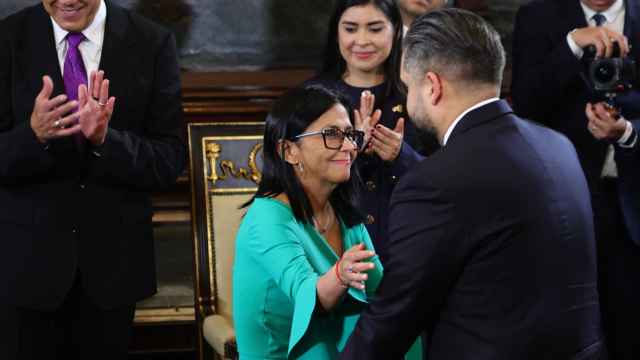Press freedom watchdog Reporters Without Borders said it will circumvent government censorship in Russia by allowing readers to access content banned by the Kremlin through Google, Microsoft and Amazon.
The France-based advocacy group will use an online technology known as mirroring to place replicas of nine banned websites from 11 countries, including Russia, on the servers of major Internet search giants in order to make their content accessible to online users from those nations, the group said in a statement.
"In these 11 countries that are 'Enemies of the Internet,' blocking the servers of these Internet giants in order to make the mirror sites inaccessible would deprive thousands of companies of essential services. The economic and political cost would be too high," the statement said, explaining the strategy.
The mirror websites would include a duplicate of Russia's Grani.ru, a prominent opposition-minded news portal that Moscow has banned from being accessed from within Russia after the government deemed its content "extremist."
Other websites that are to become accessible through their replicas include Fergananews.com, which has been blocked in the former Soviet republics of Kazakhstan, Uzbekistan and Turkmenistan, along with a number of websites banned in China, Vietnam, Cuba, Iran, United Arab Emirates, Bahrain and Saudi Arabia, according to the statement.
The project, titled Operation Collateral Freedom, is the "brainchild" of a Chinese non-governmental organization, GreatFire, whose activists have "already created unblockable mirror sites of Deutsche Welle, Google and China Digital Times," Reporters Without Borders said.
A Message from The Moscow Times:
Dear readers,
We are facing unprecedented challenges. Russia's Prosecutor General's Office has designated The Moscow Times as an "undesirable" organization, criminalizing our work and putting our staff at risk of prosecution. This follows our earlier unjust labeling as a "foreign agent."
These actions are direct attempts to silence independent journalism in Russia. The authorities claim our work "discredits the decisions of the Russian leadership." We see things differently: we strive to provide accurate, unbiased reporting on Russia.
We, the journalists of The Moscow Times, refuse to be silenced. But to continue our work, we need your help.
Your support, no matter how small, makes a world of difference. If you can, please support us monthly starting from just $2. It's quick to set up, and every contribution makes a significant impact.
By supporting The Moscow Times, you're defending open, independent journalism in the face of repression. Thank you for standing with us.
Remind me later.






